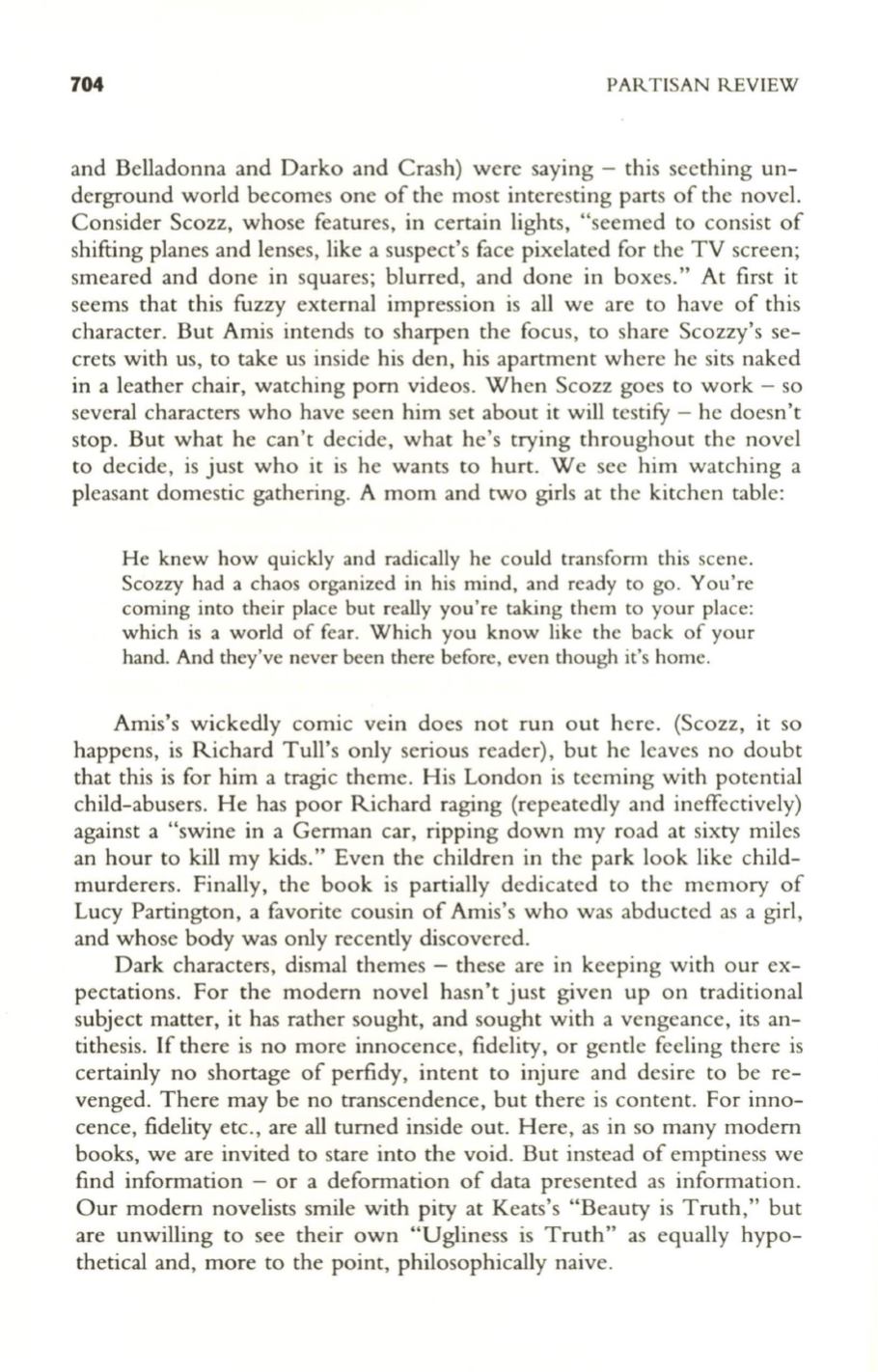
704
PARTISAN REVIEW
and Belladonna and Darko and Crash) were saying - this seething un–
derground world becomes one of the most interesting parts of the novel.
Consider Scozz, whose features, in certain lights, "seemed to consist of
shifting planes and lenses, like a suspect's face pixelated for the TV screen;
smeared and done in squares; blurred, and done in boxes." At first it
seems that this fuzzy external impression is all we are to have of this
character. But Amis intends to sharpen the focus, to share Scozzy's se–
crets with us, to take us inside his den, his apartment where he sits naked
in a leather chair, watching porn videos. When Scozz goes to work - so
several characters who have seen him set about it will testifY - he doesn't
stop. But what he can't decide, what he's trying throughout the novel
to decide, is just who it is he wants to hurt. We see him watching a
pleasant domestic gathering. A mom and two girls at the kitchen table:
He knew how quickly and radically he could transfonn this scene.
Scozzy had a chaos organized in his mind, and ready to go. You're
coming into their place but really you're taking them to your place:
which is a world of fear. Which you know like the back of your
hand. And they've never been there before, even though it's home.
Amis's wickedly comic vein does not run out here. (Scozz, it so
happens, is Richard Tull's only serious reader), but he leaves no doubt
that this is for him a tragic theme. His London is teeming with potential
child-abusers. He has poor Richard raging (repeatedly and ineffectively)
against a "swine in a German car, ripping down my road at sixty miles
an hour to kill my kids." Even the children in the park look like child–
murderers. Finally, the book is partially dedicated to the memory of
Lucy Partington, a favorite cousin of Amis's who was abducted as a girl,
and whose body was only recently discovered.
Dark characters, dismal themes - these are in keeping with our ex–
pectations. For the modern novel hasn't just given up on traditional
subject matter, it has rather sought, and sought with a vengeance, its an–
tithesis. If there is no more innocence, fidelity, or gentle feeling there is
certainly no shortage of perfidy, intent to injure and desire to be re–
venged. There may be no transcendence, but there is content. For inno–
cence, fidelity etc., are all turned inside out. Here, as in so many modem
books, we are invited to stare into the void. But instead of emptiness we
find information - or a deformation of data presented as information.
Our modem novelists smile with pity at Keats's "Beauty is Truth," but
are unwilling to see their own "Ugliness is Truth" as equally hypo–
thetical and, more to the point, philosophically naive.


